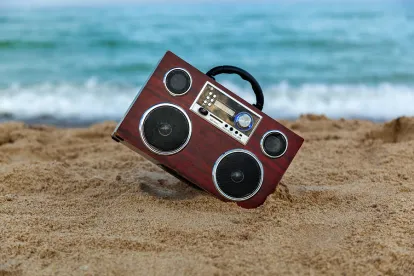The US Court of Appeals for the Second Circuit affirmed a dismissal of the plaintiffs’ state law claim for failure to allege a fiduciary duty, and vacated and remanded a judgment on a motion to dismiss as to the plaintiffs’ renewal term copyright claims for being time barred, finding no obligation for the band to have earlier sued the publisher in order to maintain its right to the renewal term. Wilson, et al. v. Dynatone, et al., Case No. 17-1549 (2d Cir., June 6, 2018) (Leval, J).
The predicate timeline is complicated. John Wilson, Charles Still and Terrance Stubbs are former members of the band Sly Slick & Wicked. In 1973, while traveling with the band, Wilson wrote the song “Sho’ Nuff.” The band promptly (on May 12, 1973) registered the composition and sound recording with the US Copyright Office. A month later, the promoter filed a registration with BMI listing Perrell Music, Belinda Music and Dynatone Music as the publishers. Approximately a year later, Chappell & Co. filed a registration of the song with the Copyright Office listing the band as the writers and Dynatone as the claimant. Then, on November 19, 2015, the band filed a renewal registration with the Copyright Office, asserting ownership of the renewal term for the song. The band had not executed any agreement with the prior publishers transferring interests in the renewal term.
The band made a sound recording of the song with People Records, which modified the recording with the addition of strings and bells. In June 1973, Polydor, successor to People Records, registered a copyright in the sound recording, claiming the recording was a work for hire. The band, however, never executed an agreement with People Records that included a work for hire provision and never transferred its renewal terms. On December 21, 2001, Universal Music Group (UMG) registered a renewal term copyright in the sound recording with the Copyright Office.
In 2013, “Sho’ Nuff” was sampled by Justin Timberlake in the song “Suit & Tie” and by J. Cole in “Chaining Day.” The band members sued Dynatone, UMG and Unichappell Music, asserting that they owned the copyrights in the song and the sound recording, and sought an accounting of the defendants’ profits from their use of the song in the preceding three years. The district court granted defendants’ motion to dismiss pursuant to Rule 12(b)(6), reasoning that the claims were time‐barred because the defendants had repudiated plaintiffs’ claims of copyright ownership many years earlier, during the initial copyright terms. The band appealed.
The Second Circuit explained that while the publishers may have repudiated the band’s claims to the initial copyright terms in the song and sound recording in the 1970s, they did not repudiate the band’s ownership of the renewal terms. The Court explained that as the authors of the song and sound recording, the band members were entitled to the renewal terms regardless of whether they abandoned their rights to the initial terms. The Court stated that the renewal terms automatically vested with them.
The Second Circuit found no facts supporting UMG’s argument that the action was time barred, concluding that UMG’s 2001 registration of the renewal term did not trigger an obligation on the band to sue. The Court pointed out that if the mere registration of a copyright triggered the accrual of a copyright ownership claim, then owners would be forced to maintain constant vigilance over new registrations. In this case, Justin Timberlake’s sampling began on January 15, 2013, and the plaintiffs filed their complaint on January 6, 2016, within the three-year statute of limitations.
The Second Circuit agreed with the lower court’s finding that the complaint failed to allege that the defendants owed the band a fiduciary duty, which is a requirement for the accounting claim. The Court noted, however, that its affirmance did not bar the plaintiffs from employing discovery to learn of revenues collected by the defendants and seeking an award under their copyright claims.




 />i
/>i

